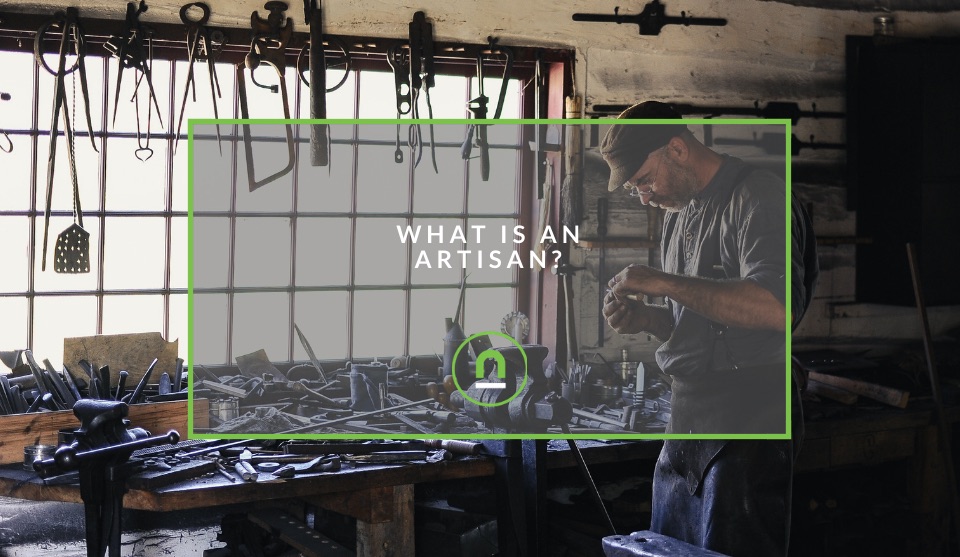Recent posts

Press Releases
The Rise of AI Computing Power Assets
16 January 2026

Industry Experts
Common ASO Mistakes African App Developers Make
09 January 2026

Ace of Trades
The South African Industrial Tech Revolution
05 January 2026

nichemarket Advice
Why Video Production Companies Still Outshine AI
24 December 2025
Popular posts
Extravaganza
Trending Music Hashtags To Get Your Posts Noticed
24 August 2018
Geek Chic
How To Fix iPhone/iPad Only Charging In Certain Positions
05 July 2020
Extravaganza
Trending Wedding Hashtags To Get Your Posts Noticed
18 September 2018
Money Talks
How To Find Coupons & Vouchers Online In South Africa
28 March 2019
What Is An Artisan?
23 October 2019 | 0 comments | Posted by Che Kohler in Ace of Trades
An artisan is a person who is highly skilled with their hands and can perform unique manual labour tasks. There is a wide variety of artisans spanning across several professions. Artisans tend to work primarily in a technical field and are often in fields with a skills shortage. An artisan can range from anything from a jewellery maker to plumber, electrician, carpenter and many other areas.
How do I become an artisan?
To become an artisan, you will have to pass a Trade Test in your field to be nationally recognised as an artisan. But first, you'll need to attend a TVET college to learn the theoretical skills necessary to study the required practical skills to become an artisan.
Aspiring artisans must begin by selecting a particular field of work. For example, within the artisan sector, there are opportunities to become an electrician, mechanic, plumber, carpenter or joiner, to name just a few.
For those who want to develop their skills further, there are a technician or engineering-related jobs. As you can see, these are all highly practical yet skilled jobs. While artisan learning programmes are primarily practical, there is a substantial amount of theory that must be obtained at a school or vocational college.
To train at a vocational college, learners must meet the requirements.
Admission requirements
The minimum requirements to enter a recognised learning programme to become an artisan are outlined in the new Draft Trade Test regulations. Students who wish to apply for entrance must achieve 40% for mathematics (excluding maths literacy) and a Grade 9 or National Certificate level 2 pass.
In the case of civil, mechanical and electrical categories of trades a minimum of 40% in the relevant N2 Trade theory or the related vocational subjects of the National Certificate (Vocational) Level 2 is required.
Occupational knowledge
Students will begin their learning programme by joining a relevant and accredited training course. Prospective artisans are trained to perform specific tasks such as fault finding, manufacturing, repair and servicing.
The training programme may include academic components like mathematics, science, drawing or technical language specific to the trade. Everything you learn will be very relevant to the practical skills you will be applying.
At the same time, learners will get an opportunity to complete practical elements in preparation for their apprenticeships or the workplace learning component of becoming an artisan.
Workplace Learning
On-site learning is a critical part of the developmental process because this is where technical knowledge and practical training is tested in a work environment. Students will be exposed to real-life situations such as work ethics, safety responsibilities and industry level performance standards, as well as getting to know what it's like to be an artisan in South Africa.
They will also be under the tutelage of an experienced mentor to get a feel for the entire scope of their chosen trade. In doing so, learners can fully comprehend what will be expected from them once they are qualified in the artisanal discipline of their choosing.
Artisan trade test
The road to becoming a recognised and qualified artisan requires you to cover both theoretical and practical tests. While your assessments can be completed through your learning program it is all seen as preparation for the trade test. Once a student has completed the professional knowledge and workplace learning segments, they will be required to take the trade test.
To become a qualified artisan and receive national recognition, learners must pass the trade test. Students can sign up to write the exam at a National Trade Test centre that is accredited by the Quality Council for Trades and Occupations.
Tell us your artisanal story
Are you a qualified artisan? How has the career path changed your life? Are you interested in becoming an artisan? Let us know your thoughts in the comments section below.
Are you looking to promote your business?
South African artisans and manufacturing business owners can create your free business listing on nichemarket. The more information you provide about your business, the easier it will be for your customers to find you online. Registering with nichemarket is easy; all you will need to do is head over to our sign up form and follow the instructions.
If you require a more detailed guide on how to create your profile or your listing, then we highly recommend you check out the following articles.
Recommended reading
If you enjoyed this post and have a little extra time to dive deeper down the rabbit hole, why not check out the following posts on artisans.
Tags: Artisan
You might also like
The Rise of AI Computing Power Assets
16 January 2026
Posted by Rehman Ali in Press Releases
An introduction to Cloud mining and monetising cloud computing as DLMining Reshapes Wall Street's New Anti-Inflation Investment Paradigm
Read moreCommon ASO Mistakes African App Developers Make
09 January 2026
Posted by Daniel Davis in Industry Experts
ASO is Localisation, Not Translation: Failing to research specific local search terms and cultural nuances is the biggest ASO error in African market...
Read more{{comment.sUserName}}
{{comment.iDayLastEdit}} day ago
{{comment.iDayLastEdit}} days ago
 {{blogcategory.sCategoryName}}
{{blogcategory.sCategoryName}}
